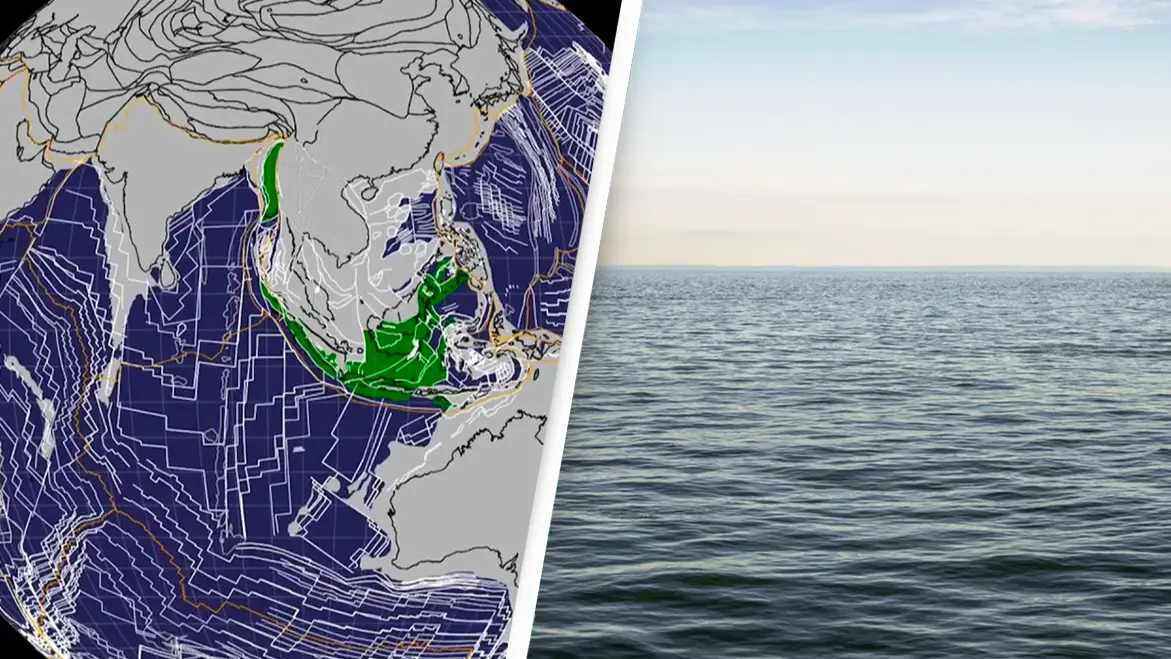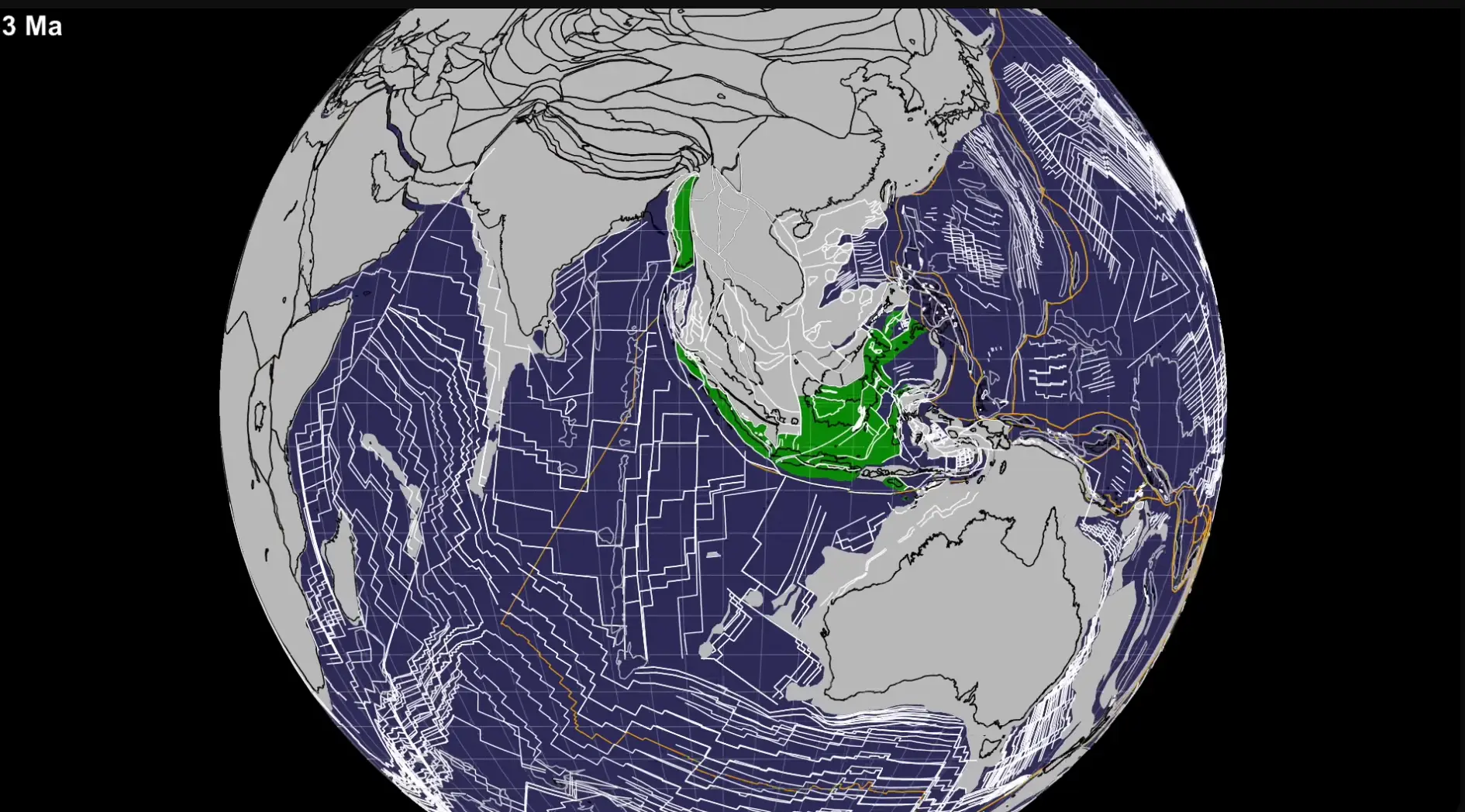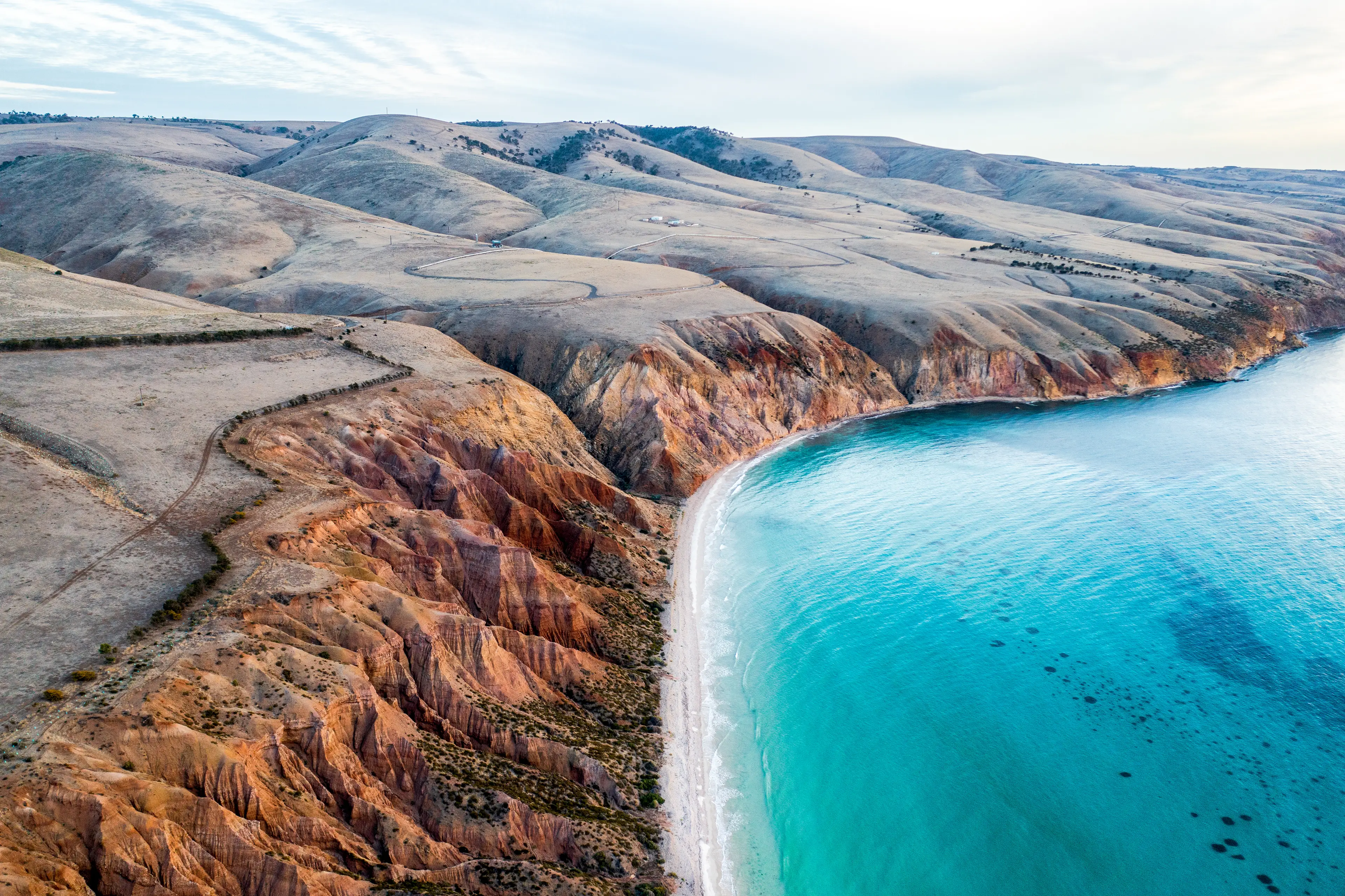
A piece of land that broke off from Western Australia in the Jurassic period has been found by geologists.
The 3,000-mile-wide landmass dates back a staggering 150 million years and has been found in the bottom of the Indian Ocean.
Named Argoland, the 'lost-continent' is said to have been pretty difficult to find.
Advert
The landmass is believed to have broken off from Australia before drifting toward Southeast Asia and eventually disappearing.
Researchers have long had an inkling that Argoland existed because of a 'void' that it left behind.
The so-called void is a basin hidden deep below the ocean known as the Argo Abyssal Plain.
While the void has been known about for some time, geologists struggled to find evidence of the actual continent - until now.
But, as I'm sure you can imagine after all these years, Argoland hasn't been found fully in tact, but in fragments instead.

These fragments have been hailed as 'mega-units' by researchers.
As to why it's been so hard to find, Douwe van Hinsbergen, one of the study’s authors, said: "If continents can dive into the mantle and disappear entirely, without leaving a geological trace at the earth’s surface, then we wouldn’t have much of an idea of what the earth could have looked in the geological past."
He went on: "Those reconstructions are vital for our understanding of processes like the evolution of biodiversity and climate, or for finding raw materials. And at a more fundamental level: for understanding how mountains are formed or for working out the driving forces behind plate tectonics; two phenomena that are closely related.”
It total, geologists spent seven years 'putting the puzzle together'.
This is because Argoland was 'splintered into many different shards'.

"The situation in Southeast Asia is very different from places like Africa and South America, where a continent broke neatly into two pieces," explained Hinsbergen's colleague, Eldert Advokaat.
"Argoland splintered into many different shards. That obstructed our view of the continent’s journey."
It's said that Argoland began splintering around 300 million years ago.
Researchers have found several lost continents over the years, with Zealandia being the eighth to be discovered.
Zealandia is almost entirely submerged in the southwest Pacific, and is believed to be a staggering one billion years old.
As per its name, it extends underwater from New Zealand and was confirmed as Earth's eighth continent in 2017.
Topics: News, World News, Science, Australia